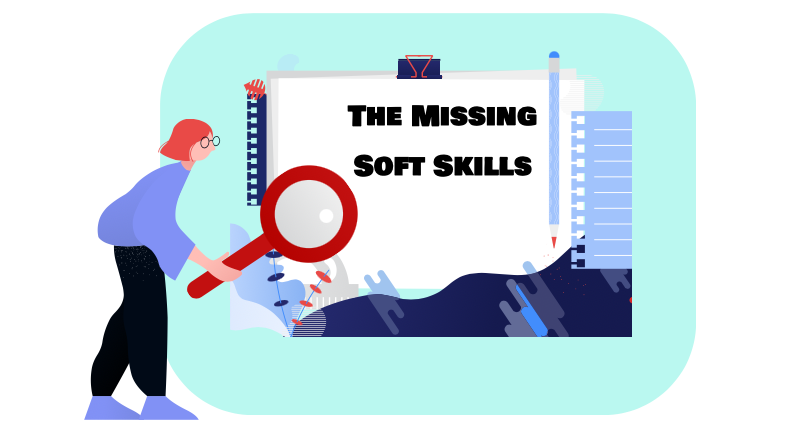
Written by Monal Jaiswani• March 16, 2021

The world is changing. As technology and society advance, new skills will be required of our workforce. A century ago, there was a high demand for workers with technical skills (hard skills). Many of these tasks can easily be done
by computers or robots. Employers are now seeking skills that cannot be automated (soft skills) such as communication, leadership, creativity, adaptability, and problem-solving. Unfortunately, our workforce is unprepared for this shift.
According to the World Economic Forum, economies all over the world are expected to pay a steep price for the skills gap.
The United States and China alone, the two most powerful economies on the planet, will experience a combined loss of over $400 billion annually. To put this into perspective, this is more than the GDP (gross domestic product) of over 160 countries.
Automation is changing the way that we approach work. Tasks that once required a human worker to complete, can be completed by algorithms and machines that work around the clock. Experts project that by the year 2030 as many as 400 million workers may be forced to find new professions because their current job was eliminated due to automation. This is a staggering number. Workers and employers
alike must find a way to adapt and minimize their risk.
People in the future will likely experience a much different job market than what we see today. Due to rapidly changing technology and increases in automation,
it is estimated that 65% of school-aged children will one day work in jobs that haven’t been invented yet. This can be a scary thought for young workers
who are trying to figure out their career path.
It’s critical for our education systems to produce a workforce that has the skills that businesses need. As the demand shifts from hard skills to soft skills, schools need to adjust their curriculum. Unfortunately, this transition
is not happening at a fast-enough pace.
3 in 4 employers said they have a hard time finding graduates with the soft skills their companies need.
Employees use critical thinking to analyze, evaluate, and reflect on information that they obtain through reading, communicating with others, and observing their environment. They then use this information to make sound judgements
and decisions. Critical thinking is an extremely important skill for people who want to advance into the ranks of management by demonstrating the ability to develop and drive strategy.
A survey of 650 employers found that 64% of companies have difficulty finding qualified candidates with critical thinking skills.
Many employers agree that communication skills are the most difficult to automate. Being able to communicate effectively relies on listening, comprehension, reading body language, and relaying ideas in a clear, concise way. Communication
skills depend on a variety of factors that a machine is not currently able to replicate including tone, emotion, and empathy.
Despite the demand for this skill, 54% of employers have difficulty finding potential candidates that possess strong communication skills.
Companies spend thousands of dollars looking for the perfect employees.
In fact, the average company spends $800,000 each year looking for qualified candidates. The soft skills gap is driving
this cost higher as employers sort through hundreds of unqualified candidates.
About 60% of US employers have job openings that remain unfilled for longer than 12 weeks.
With the soft skills gap continuing to widen, companies need to find new ways to tackle these challenges on a large scale. Providing training helps, but it’s important to provide training in a manner that engages employees and makes
learnings stick. At the same time, training must be provided to all employees so that everyone has an opportunity to learn and grow.
After all, if effective training pushes everyone to add even just a little more value, wouldn’t that boost organizational growth by leaps?